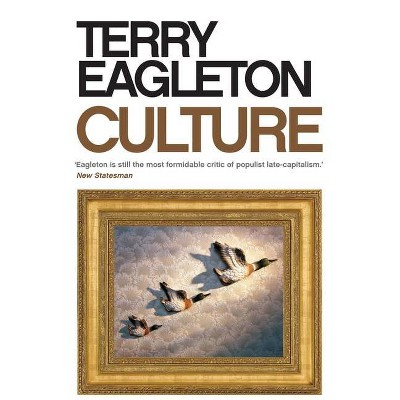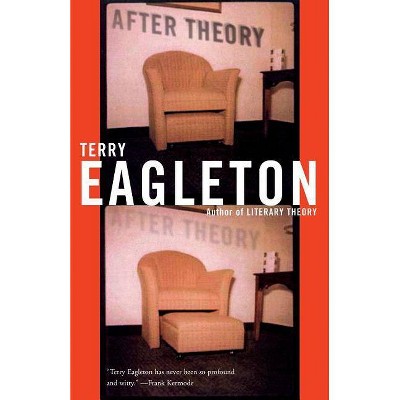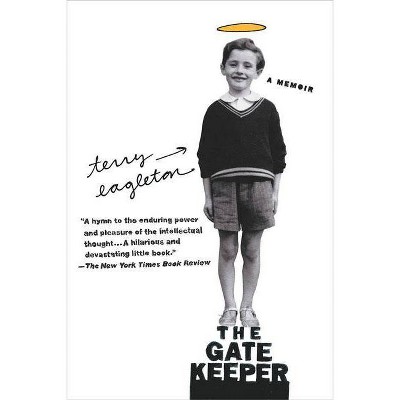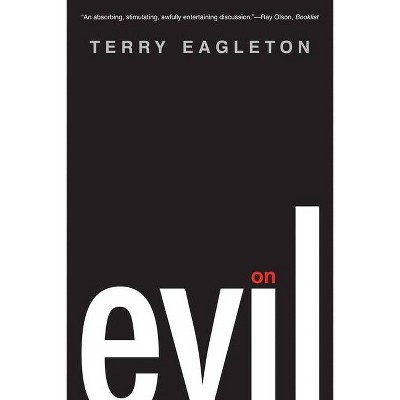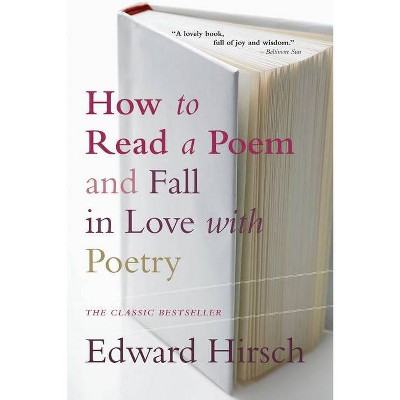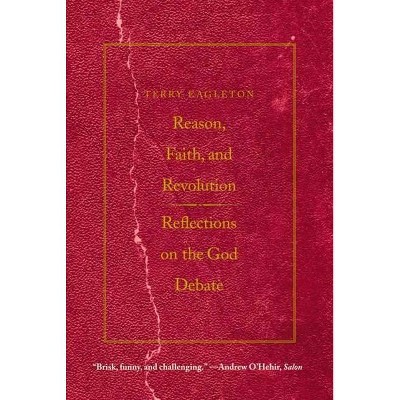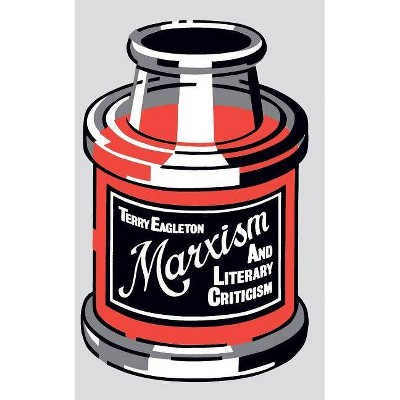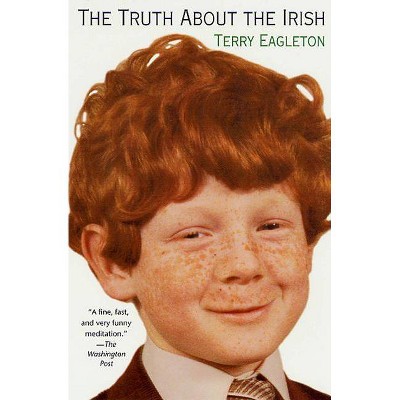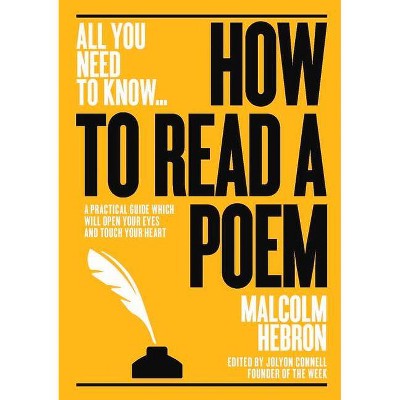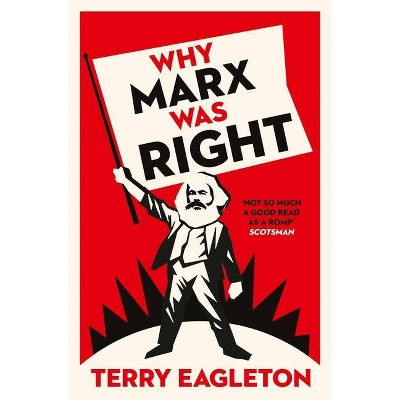How to Read a Poem - by Terry Eagleton (Paperback)

Similar Products
Products of same category from the store
AllProduct info
<p/><br></br><p><b> Book Synopsis </b></p></br></br>Lucid, entertaining and full of insight, <i>How To Read A Poem</i> is designed to banish the intimidation that too often attends the subject of poetry, and in doing so to bring it into the personal possession of the students and the general reader.<br /> <br /> <ul> <br /> </li> <li>Offers a detailed examination of poetic form and its relation to content.<br /> </li> <li>Takes a wide range of poems from the Renaissance to the present day and submits them to brilliantly illuminating closes analysis.<br /> </li> <li>Discusses the work of major poets, including John Milton, Alexander Pope, John Keats, Christina Rossetti, Emily Dickinson, W.B. Yeats, Robert Frost, W.H.Auden, Seamus Heaney, Derek Mahon, and many more.<br /> </li> <li>Includes a helpful glossary of poetic terms.</li> </ul><p/><br></br><p><b> From the Back Cover </b></p></br></br>In this witty, accessible book, Terry Eagleton argues that the art of reading poetry is as much in danger of becoming extinct as thatching or clog dancing. <p>On the whole, students today are not taught how to be sensitive to language - how to read a poem with due attention to its tone, mood, pitch, pace, rhythm and texture, rather than just to 'what it says'. To demonstrate how this works in practice, the author takes a wide range of poems from the Renaissance to the present day and submits them to brilliantly illuminating close analysis. As one of the world's leading literary theorists, Eagleton also summons the aid of such pioneering critics as the Russian Formalists to raise some provocative general questions: <br /> </p> <ul> <li>What is poetry, and how does it differ from prose?</li> <li>Is there a language peculiar to poetry?</li> <li>What exactly do we mean by imagery?</li> </ul> <p>Lucid, entertaining and full of insight, <i>How To Read A Poem</i> is designed to banish the intimidation that too often attends the subject of poetry, and in doing so to bring it into the personal possession of the students and the general reader.</p><p/><br></br><p><b> Review Quotes </b></p></br></br><br>The wit he brings to the task of helping readers read poems will, for some readers (myself included), be a source of pleasure. (<i>Notes and Queries, </i> June 2010)<br /> <br /> <p>"From the first page, the reader of <i>How to Read a Poem</i> realises that this, at last, is a book which begins to answer Adrian Mitchell's charge: 'Most people ignore most poetry because most poetry ignores most people'. Eagleton introduces himself as 'a politically minded literary theorist'. The remarkable achievement of this book is to prove that such a theorist is the only person who can really show what poetry is for. By a brilliant and scrupulous series of readings - of Yeats and Frost and Auden and Dickinson - framed in a lively account of the function of criticism as perhaps only he could expound it, Eagleton shows how literary theory, seriously understood, is the ground of poetic understanding. This will be the indispensable apology for poetry in our time."<br /> <i>Bernard O'Donoghue, Wadham College, Oxford<br /> </i></p> <p>With energy and wit, Eagleton proves once and for all that close readers and theoretical readers should be partners rather than enemies. <i>John Redmond, Liverpool University</i></p> <p>...lucid and engaging...Eagleton's book 'designed as an introduction to poetry for students and general readers', is a breath of fresh air. <i>Marjorie Perloff, TLS, Books of the Year</i></p> <p>"Eagleton raises many interesting points" <i>Choice</i></p> <p>"A how-to book with an agenda. Smart, witty and provocative ... <i>How to Read a Poem</i> challenges us not only to look again at poetic form, but also to bring aesthetics back into our discussions fo what makes a poem worth studying. We may not agree with Eagleton, but we would do well to accept his challenge.</p> <p><i>College Literature</i></p> <p>Illuminating.<br /> <i>The Times</i></p> <p> </p><br><p/><br></br><p><b> About the Author </b></p></br></br><b>Terry Eagleton</b> is John Edward Taylor Professor of English Literature at the University of Manchester. His recent publications include <i>The English Novel</i> (2004), <i>Sweet Violence: The Idea of the Tragic</i> (2003), <i>The Idea of Culture</i> (2000), <i>Scholars and Rebels in Nineteenth-Century Ireland</i> (1999), <i>Literary Theory: An Introduction</i> (Second Edition, 1996) and <i>The Illusions of Postmodernism</i> (1996), all published by Blackwell Publishing.
Price History
Cheapest price in the interval: 12.59 on March 10, 2021
Most expensive price in the interval: 12.59 on December 20, 2021
Price Archive shows prices from various stores, lets you see history and find the cheapest. There is no actual sale on the website. For all support, inquiry and suggestion messagescommunication@pricearchive.us
